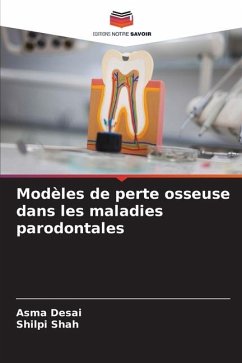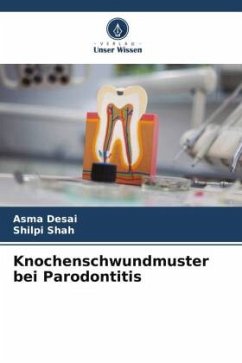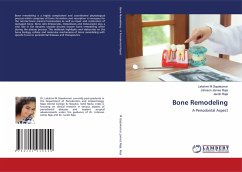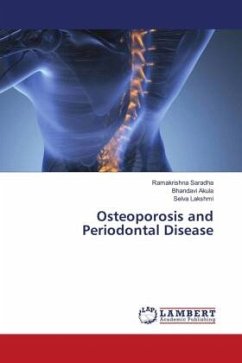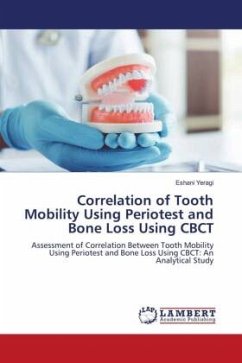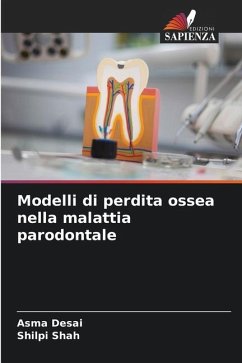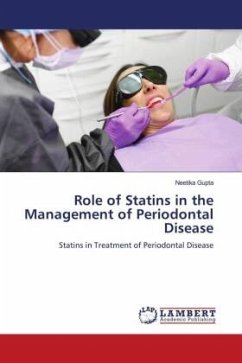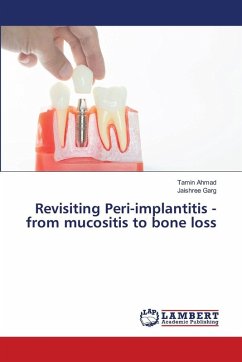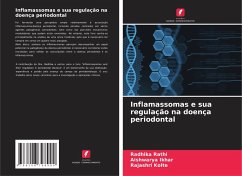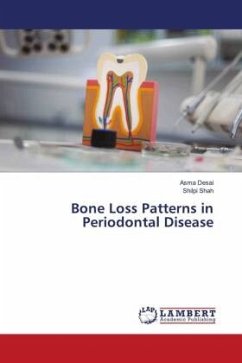
Bone Loss Patterns in Periodontal Disease
Versandkostenfrei!
Versandfertig in 6-10 Tagen
40,99 €
inkl. MwSt.

PAYBACK Punkte
20 °P sammeln!
Alveolar bone loss is a hallmark of periodontitis progression and its prevention is a key clinical challenge in periodontal disease treatment. Bone destruction is mediated by the host immune and inflammatory response to the microbial challenge. Bone resorption is a basic physiologic process that is central to the understanding of many key pathologies, with its most common oral manifestation seen as the alveolar bone destruction in periodontitis.There are two primary cells responsible for both the resorption and deposition phases of bone remodeling: osteoclasts and osteoblasts. The activity of ...
Alveolar bone loss is a hallmark of periodontitis progression and its prevention is a key clinical challenge in periodontal disease treatment. Bone destruction is mediated by the host immune and inflammatory response to the microbial challenge. Bone resorption is a basic physiologic process that is central to the understanding of many key pathologies, with its most common oral manifestation seen as the alveolar bone destruction in periodontitis.There are two primary cells responsible for both the resorption and deposition phases of bone remodeling: osteoclasts and osteoblasts. The activity of these cells, particularly the osteoclasts, is influenced directly or indirectly by hormonal signals. This interaction between bone remodeling cells and hormones creates the opportunity for a multitude of pathophysiological consequences.



